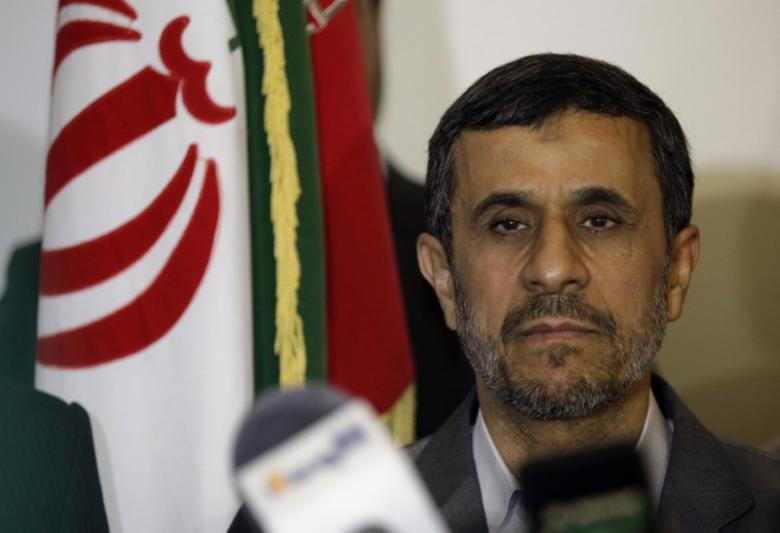London- Iran’s Former President Mahmoud Ahmadinejad announced on Tuesday that he will not run for presidency in next year’s Iranian election, heeding the wishes of Supreme Leader Ayatollah Ali Khamenei.
Some newspapers that support Iranian President Hassan Rouhani considered this a collapse of Ahmadinejad’s political life.
Former president media bureau published a letter to Khamenei, revealing that he has no plans to take part in the presidential plans scheduled on 18 May in compliance with Khamenei recommendations. He ended his letter to the supreme leader with, “I will always remain the regime’s soldier.”
On the sidelines of a lecture on Monday Khamenei said that he met someone and advised him not to take part in the elections for his own good and for the country’s interest as well. The Supreme Leader expressed concern over the polarization of blocs in the Iranian administration, stressing that Iran “needs to maintain calmness and unity in the current period.”
Khamenei condemned the leakage of some details from his meeting with Ahmadinejad. Hours after his speech, Dolatebahar Website raised doubts that Ahmadinejad might challenge Khamenei and seek re-election.
This is not the first time Khamenei and Ahmadinejad disputes come to surface but it’s one of the few times when Khamenei admits interfering in the elections and the candidates.
Ahmadinejad enjoyed the Supreme Leader’s political support from 2005 until 2013. Yet, the case is not any similar now especially that the relations between the two deteriorated during Ahmadinejad’s second term.
The Iranian Former President held several visits to Iranian cities following the completion of Parliamentarian elections in February. Rouhani’s government objected over these actions, considering his speeches against the nuclear agreement an electoral activity.
Commenting on that, Ahmadinejad denied on several occasions that his activity had electoral purposes.
